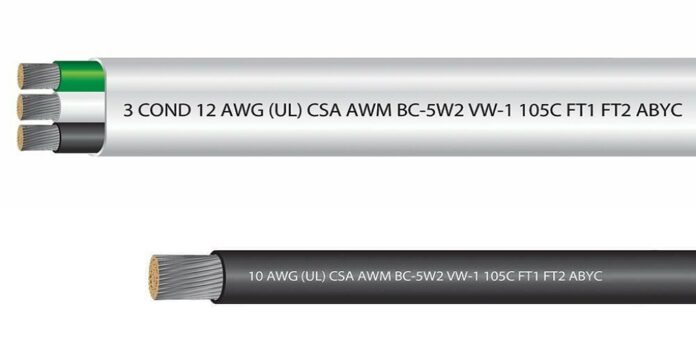There’s great variety in battery cable and wire, and though some harness cables are sold ready to be hooked up, other battery cables are more generalized, allowing them to be used for a wider range of applications.
However, before you buy battery cable wire, you should cross your t’s and dot your i’s to ensure that you’ll be able to safely use the cable as you intend. It goes a lot farther than ensuring that your leads are insulated with black and red cable; after all, the cable underneath the two leads is liable to be identical. You just need to make sure you’re using the proper cable for the job.
1. Does it carry an appropriate voltage rating?
One of the most important things to consider before you buy electrical cable is that it carries an appropriate voltage rating for the job. Exceeding the voltage (or amperage) rating of a given cable is extremely dangerous and may even be a violation of the law.
Regardless, if you use a battery cable that is not appropriately rated to its power source, the cable is liable to overheat, increasing the risk of fire, which can incapacitate the electrical system of the device or machine, and most importantly, is a risk to public health and safety.
2. Is the cable itself flexible enough?
Another thing to keep in mind is that you don’t want to put good money into battery cable or wire, only to determine once you have it in hand that you won’t be able to use it because it’s too stiff. One of the easiest ways to “gauge” a subjective measure of a cable’s flexibility is by its American Wire Gauge (AWG) rating, but this does not paint the entire picture.
The thicker a cable or wire is, the stiffer it will consequently become. For this reason, some electrical conductors, like marine battery cable and even welding cable, are made with an exceptionally high strand count of individual pure copper conductors. This enables the AWG gauge to increase without making the cable too stiff to work into location.
3. Does the insulation match the demands of the environment?
You also need to be assured of whether or not the battery cable or wire in question is well-suited to its intended purpose, some of which will be determined by the type of insulation that’s paired with it. For example, you may recall that some fire alarm cables are finished with insulation that is highly heat resistant and does not produce toxic fumes when burned. In the realm of battery cables, it’s common to come across colored insulation (useful for determining positive and negative leads) as well as insulation that is resistant to a wide range of environmental stressors.
For example, some marine battery cables are finished with insulation that is resistant to extremes of weather, humidity and temperature, as well as abrasion, acids, oils, gasoline and other chemicals. Some are even UV-resistant. Just be sure that whatever battery cable you use, it’s well rated for the application.
4. If you are not going to use it as a battery cable, is it rated for the intended application?
Finally, it’s important to keep in mind that some battery cables are not only suitable as leads for battery sources, but can be used for other specific applications. For example, some battery cables can be used in solar panel arrays or as leads for generators. Just be sure you know the relevant ratings of the cables as well as whether or not they are suitable for the intended application.
Ready to learn more about battery cables and wires? Visit EWCSWire.com and see what’s in stock or get in touch with their customer service team. You can contact them at [email protected] or at 800-262-1598.


